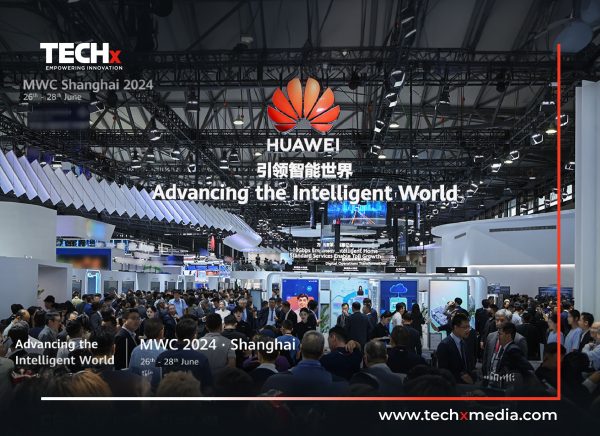
Huawei announced that telecom stakeholders from MENA and Central Asia convened at the ‘Middle East and Central Asia ICT Policy and Governance Forum’ during MWC Shanghai 2024, the premier connectivity event in the Asia Pacific region. This roundtable, moderated by the GSMA, gathered regulators and operators from the Middle East, North Africa, and Central Asia, alongside senior officials from the China Academy of Information and Communications Technology and Huawei. The forum focused on industry policies, best practices, and key trends in the telecom sector.
Driving Policy and Innovation
Under the theme “Driving Policy and Innovation to Shape Our Digital Future,” the forum emphasized spectrum, optical, and datacom policy planning. Participants explored how carriers, enterprises, oversight agencies, and regulators can bolster mobile security capabilities and enhance risk management strategies. The meeting also advocated for the adoption of GSMA’s Network Equipment Security Assurance Scheme (NESAS) and Mobile Cybersecurity Knowledge Base (MCKB). Attendees reviewed industry policies and successful practices, with insights drawn from China’s use cases.
Industry Insights
Mr. Jawad Abassi, Head of MENA at GSMA, who moderated the discussion, highlighted the importance of robust security practices and policies by industry suppliers. He emphasized the role of the mobile ecosystem in advancing positive policy and spectrum outcomes, driving digital innovation, and addressing societal challenges.
Mr. Jeff Wang, President of Public Affairs and Communications at Huawei, stated, “To fully reap digital dividends, we need to enhance connectivity, embrace digital applications, and empower digital talent.”
Cybersecurity and Risk Management
The NESAS framework demonstrates global collaborative efforts in cybersecurity, providing a standardized assessment mechanism developed by GSMA and 3GPP. It serves as a security baseline for vendors’ product development and lifecycle processes, ensuring network security.
MCKB supports stakeholders in managing risks within the 5G ecosystem, offering insights for risk management strategies and best practices for risk mitigation. This framework guides actions to build security assurance, enhancing mobile security capabilities for carriers, enterprises, oversight agencies, and regulators.
Focus on Policy and Cybersecurity
The forum featured two sessions on policy implementation and cybersecurity. The ICT Policy Implementation session discussed spectrum planning for 5G and 5G-A networks, universal service funds (USF), and policies promoting mobile connectivity in rural areas. Recommendations were provided for countries like UAE, Saudi Arabia, Pakistan, and Iraq, based on their achievements and specific needs.
The Cybersecurity Session addressed building a Telecom-Information Security Management System (T-ISMS) to tackle current cybersecurity issues. Topics included roles and responsibilities in telecom cybersecurity, collaboration among stakeholders, and how regulatory authorities can promote telecom cybersecurity.
Strategic Network Development
Robust national network development strategies are vital for MENA, particularly for ambitious projects like Saudi Arabia’s 10Gbs Society. Government policies can incentivize carriers and enterprises to invest in infrastructure optimization to meet the growing demand for advanced services.
Huawei’s Commitment to Cybersecurity
Mr. Lin Yanqing, Principal Consultant at Huawei, and Mr. Aloysius Cheang, Chief Security Officer for Huawei Middle East and Central Asia, emphasized Huawei’s proactive approach to telecom cybersecurity standardization. Cheang noted, “As we advance into the digital future, cybersecurity must safeguard the trust and resilience of the network. Cybersecurity is a team sport, and together with GSMA, we can leverage initiatives like NESAS and MCKB to secure broadband, 5G, and beyond.”
Huawei collaborates with GSMA, ITU, 3GPP, and other organizations to ensure customer security and foster a healthy mobile ecosystem. The company has passed NESAS/SCAS 2.0 evaluations for its 5G base station and NESAS audits for its RAN and core network, demonstrating its commitment to cybersecurity.
By addressing policy and cybersecurity, MWC Shanghai 2024 has set the stage for significant advancements in the telecom sector, fostering collaboration and innovation across the MENA and Central Asian regions.